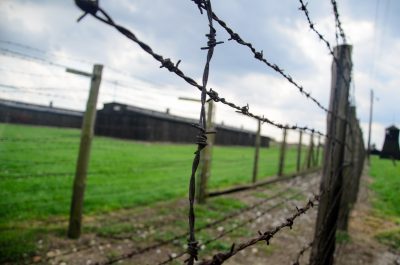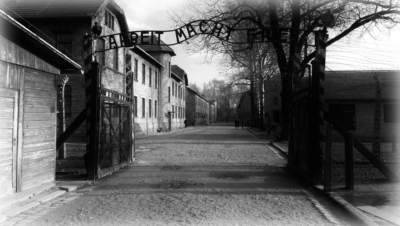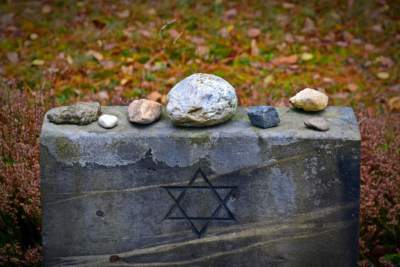A new piece of right-wing Polish legislation, which criminalizes accusing Poland of complicity in the Holocaust, sparked international condemnation, hitting a particularly raw nerve with Jews in America and Israel.
The amendment to the Act on the Institute of National Remembrance is a reaction to phrases like “Polish death camps,” used by many to describe concentration camps on Polish soil. Polish citizens see the term as slander and object to it because of the 3 million ethnic Poles also killed in the camps.
The Polish government and many of its citizens have vigorously defended the legislation’s self-professed intention of “protecting the reputation of the Republic of Poland and the Polish Nation,” despite accusations from Jews in Israel and America that the law rewrites history and is akin to Holocaust denial.
Between the growing right-wing politics of today’s Europe and the cherry-picked regional memory of World War II, European Jewish students are fighting to bring nuance to the conversation.
The European Union of Jewish Students and the World Union of Jewish Students released a joint statement on the issue opposing the law but placing it in its context. “We must have a heightened sensitivity to the genuine attempts of Poland to heal itself of the dark horrors of the Second World War,” the statement reads. “But we must be adamant in saying that this healing will never occur without an honest and open dialogue.”
Polish Jewish students, though not affiliated with EUJS or WUJS, agree.
University of Warsaw student Abraham Hayman expressed no surprise at the passing of the amendment, given the current right-wing government. From the majority Polish perspective, “every nation has a right to protect their good name in the world community,” he said, referencing arguments over the phrase “Polish death camps.” Having said this, he made clear that he personally doesn’t support the amendment.
The legislation, though meant to settle the issue of Poland’s role in the Holocaust, has instead reinvigorated the global debate over the status of individual Poles, the Polish nation, and the Polish state during that time. “Nobody is claiming that the Polish state collaborated with the Nazis, or that Poles built Auschwitz and operated it,” Hayman said, criticizing the mainstream Polish narrative that Poland has been unfairly judged. But it’s important to understand “whether everybody helped [the Nazis] or not. And if they didn’t… then what were they.”
To bolster the new legislation in the face of global backlash, Poland has doubled down on a mass online campaign involving a particularly lenient Holocaust narrative.
According to Hayman, the Poles now feel singled out by the widespread outcry against the Holocaust amendment – and many perceive it as a Jewish conspiracy against them – because other countries have also tried to control their Holocaust histories without receiving the same level of reproach. He pointed out that much of the former Soviet bloc has legislation dealing with the way the Holocaust is remembered. For example, a Ukrainian law passed in 2015 makes it illegal to insult the memory of Ukrainian freedom fighters, a label that includes several anti-Semitic groups who collaborated with the Nazis and killed many Jews.
However, Anna Vyshniakova, president of the Ukrainian Union of Jewish Students, sees a clear difference between Poland’s amendment and the Ukrainian law. The law is specifically to “support the national spirit of Ukrainians and to draw a thick line between Ukrainian and Russian history,” she said, explaining that it was passed after the 2014 Ukrainian revolution. It mentions nothing about the Holocaust and is about defining “the Ukrainian heroes of the 20th century,” she said. And while Ukraine has the right to venerate whomever it wants, Ukrainian freedom fighters aren’t necessarily “the heroes of the Jewish community.”
Vyshniakova also stressed that Poland chose “a defensive position” and the law was not “an attack against Jews.” Still, she noted personal concern over growing anti-Semitism in the wake of the Polish legislation. There was no wave of anti-Semitism after the Ukrainian law passed, she said.
Even in this atmosphere, however, Jonas-Kowalik still has hope for Holocaust education in Poland. “It might be harder… because of the attitudes in society. [But] I feel like there are a lot of Polish people who are really sympathetic to our cause,” she said. Hayman described education as the “key, really, to solving this problem” of the growing European far right.
Given this discourse among European students, it makes perfect sense that the European Union of Jewish Students and World Union of Jewish Students titled their joint statement against the new Polish legislation “Education, Not Criminalization.”
“If we don’t make sure to foster education and inclusivity in the long run… similar [events] will continue to follow,” said Alina Bricman, president of the European Union of Jewish Students and one of the architects of the statement. At the same time, the drafters valued nuance. “We have to anchor the Polish Holocaust law into a broader context,” she said. “This law did not appear in a vacuum. It is a result of broader tendencies all throughout the continent.” What she appreciated about the joint statement was “it doesn’t shy away from the idea of historical complexity – and that is the basis for dialogue.”
Jonas-Kowalik suggested bringing that same level of complexity to how Jews view Poland in general. “I want people to understand that we are not living on a cemetery,” she said. “I don’t have this feeling of walking on graves.” She wants other Jewish communities to appreciate the ways in which Poland’s Jews have thrived. “We need support from other Jewish communities,” she said. “And I’m not talking about the money, I’m not talking about lobbying. I’m talking about friendship… Hillel Poland would love to have guests from all over the world who really want to visit us as living people, not Poland as a graveyard.” Poland’s new legislation “will not change that we are here,” she adamantly added. “It will not destroy our community. We are not that fragile.”
Hayman was less optimistic. It’s “truly a great miracle that Jews are still in Poland,” he said, but appealed to Jews outside Poland to “this time, react in the right time and with the right measures” to Polish anti-Semitism to prevent potential violence.
A strong believer in Jewish student activism, Bricman expressed a measured hopefulness about the situation in Poland and Europe overall. “Students, as a default, are not afraid. They may be concerned, but they are doers,” she said. “If we don’t want right-wing extremists to take power, we must, rather than run away, cultivate a next political generation that presents a different way.”
Lev Gringauz is studying journalism at the University of Minnesota.
![fence-444416_1920 (1) | [Public Domain], via Pixabay](https://newvoices.org/wp-content/uploads/2018/02/fence-444416_1920-1.jpg)



